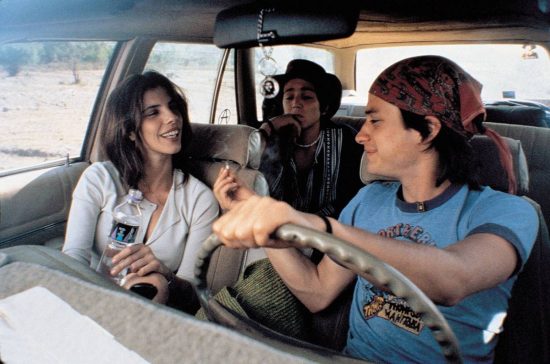Review: Y Tu Mamá También – “A display of cinematic talent at its highest”
Few films that have come from Latin America resonate quite as strongly as the Mexican film, Y Tu Mamá También (2001), which translates directly to “And Your Mum, Too”. A blend between dark comedy, drama, road movie and coming-of-age, as well as being an exploration through some of Mexico’s most prevalent problems with class inequality and corruption, it’s mainly a wonderfully honest look at growing up and sexuality – something that gets thrown around a lot in cinema but rarely has the impact that this film delivers. Y Tu Mama También is a display of cinematic talent at its highest, it helped put modern Mexican cinema on the map and make it one of the leading film industries in Latin America. It’s also the last film that director Alfonso Cuarón and his partner-in-crime, cinematographer Emmanuel Lubezki, did in Mexico, before they went on to make massively successful films such as Harry Potter and the Prisoner of Azkaban (2004), Children of Men (2006) and Gravity (2013).
Julio (Gael Garcia Bernal) and Tenoch (Diego Luna), two best Friends from middle and upper class families respectively, after their girlfriends leave to Italy for the summer, leaving them restless and worried, meet Luisa (Maribel Verdú), Tenoch’s cousin’s wife, a late-twenty year old, attractive Spanish woman. In their eagerness to sound more interesting and mature, they try to impress Luisa by telling her that they will be going on a roadtrip the following day to a beautiful, secluded beach in Mexico called Boca del Cielo (Heaven’s Mouth). After Luisa finds out that her husband has been cheating on her, she decides to call Tenoch and ask if she can tag along the trip. As they travel in Julio’s sister’s car to a made up beach at a made up location, smoking joints, teasing each other, and telling sexual anecdotes, Tenoch and Julio’s inseparable relationship starts to crumble as the sexual tension with Luisa starts to build up and secrets about them are unveiled. Accompanied by a brilliant voice-over from an omniscient narrator, the movie is an emotional roller-coaster full of unpredictable plot twists and revelations that keep the narrative alive to the very end.
There’s something special about those extremely well-made independent films; the way they look, the way they sound, the stories they tell. The story behind Y Tu Mamá También is very simple, and it fits all the genre conventions of coming-of-age films (exploration of sexuality, loss of innocence, heartbreak, etc.) yet it’s the details of the main characters’ backstories that makes it so engaging and easy to empathize with. The film flows extremely well because nothing is overly-complicated. Most of what happens is straightforward, and things are said explicitly, making it an enjoyable and easy viewing for most audiences, yet Cuarón communicates so much more. The parallel between the pool in Tenoch’s house and the filthy one in the motel, the fact that pigs wreck their tents in a beach called “Heaven’s Mouth”, or the moment when they pass by Tenoch’s maid’s town of origin, are part of Cuarón’s depiction of, as Roger Ebert claims, the “two Mexicos”.
The film is also an opportunity to see three stars of Latin cinema in the early stages of their career, as the performances of the charismatic Gael García Bernal and Diego Luna (who’s been cast as one of the main characters in the upcoming Star Wars: Rogue One film) are outstanding. The chemistry between them (they are longtime friends in real life as well) and with Maribel Verdú is what gives life to the film – their interactions feel natural and believable. Luisa is beautiful and mysterious, a symbol of sexual maturity and composure, despite her tumultuous personal life, a role that Verdú takes on seamlessly.
There’s a scene in the film, a conversation at the beach bar between the three leads, which lasts almost 7 minutes without cutting. It’s such a memorable scene because it encompasses everything that makes the movie so good: Cuarón’s excellent directing, talented acting, an outstanding script (that got nominated for an Oscar), and great cinematography. For anyone who’s not familiar with Latin American cinema, Y Tu Mamá También is a must-see and the perfect film to understand the how the rich culture of Latin America translates to the cinematic language and deliver films of very high standards.












I love reading these reviews!